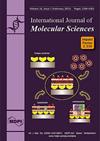AICAR Improves Outcomes of Metabolic Syndrome and Type 2 Diabetes Induced by High-Fat Diet in C57Bl/6 Male Mice.
Abstract
The aim of the study was to investigate the effect of AMP-activated protein kinase activator 5-aminoimidazole-4-carboxamide ribonucleoside (AICAR) on the consequences of metabolic syndrome and type 2 diabetes induced by the consumption of a high-fat diet (HFD) in male C57Bl/6 mice. Additionally, the animals from group 6 were administered Methotrexate (MTX) at a dose of 1 mg/kg in parallel with AICAR, which slows down the metabolism of AICAR. The animals were recorded with signs of metabolic syndrome and type 2 diabetes mellitus by recording their body weights, glucose and insulin levels, and the calculating HOMA-IRs. At the end of the study, at the end of the 13th week, during necropsy, the internal organs were assessed, the masses of the organs were recorded, and special attention was paid to visceral fat, assessing its amount and the mass of the fat surrounding epididymis. The biochemical parameters and histology of the internal organs and tissues were assessed. The animals showed signs of metabolic syndrome and type 2 diabetes, namely, weight gain, hyperglycemia, hyperinsulinemia, an increase in the amount and mass of abdominal fat, and metabolic disorders, all expressed in a pathological change in biochemical parameters and pathological changes in internal organs. The AICAR treatment led to a decrease in body weight, a decrease in the amount and mass of abdominal fat, and an improvement in the pathomorphological picture of internal organs. However, some hepatotoxic effects were observed when the animals, on a received standard diet (STD), were treated with AICAR starting from the first day of the study. The additional administration of MTX, an AICAR metabolic inhibitor, did not improve its efficacy. Thus, AICAR has therapeutic potential for the treatment of metabolic syndrome and type 2 diabetes.





